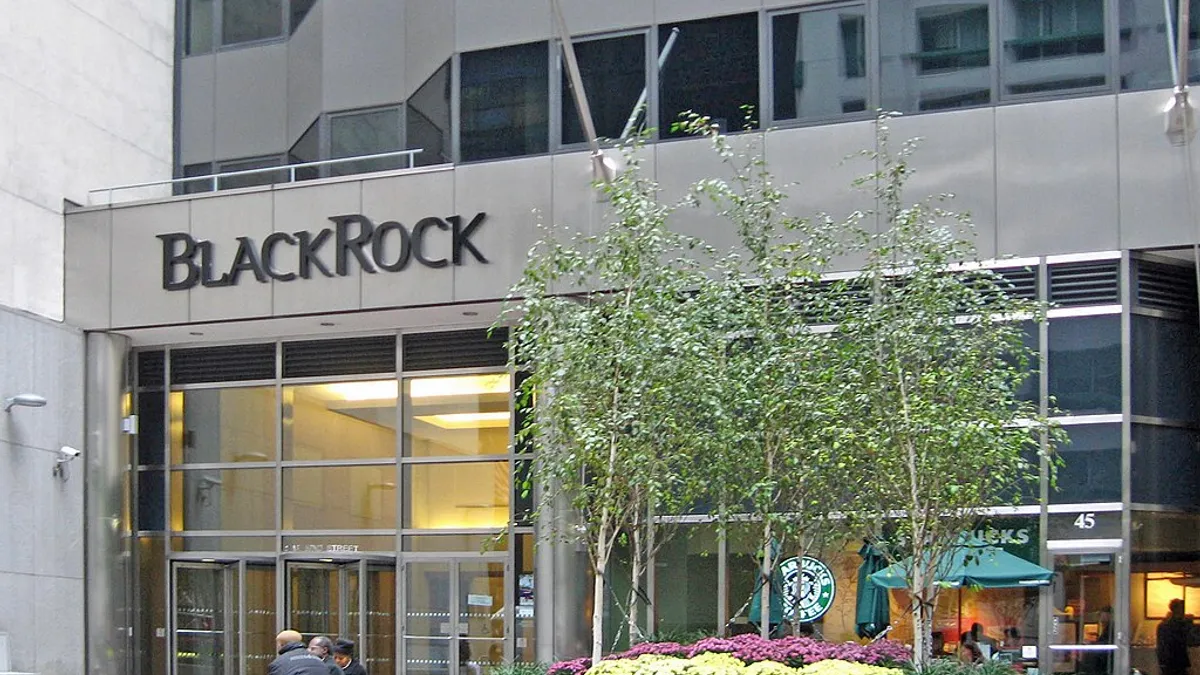Dive Brief:
- BlackRock, the world's largest asset manager, voted against the management of 53 companies including seven OEMs and industrial suppliers in the last year because these companies failed "to make sufficient progress regarding climate risk disclosure or management," according to a report released by the investor Tuesday.
- Daimler, Deutsche Lufthansa, TransDigm Group and Volvo, along with industrial raw material suppliers Air Liquide, Grupo Mexico and HeidelbergCement were among the companies BlackRock took voting actions against.
- The majority of the 53 companies are in the energy and utilities sectors. BlackRock has an additional 191 companies "on watch," promising to vote against boards and management if climate-related disclosures do not improve.
Dive Insight:
BlackRock's shift to demand greater accountability for progress in the fight against climate change started in January when CEO Larry Fink published a letter stating that the investor would take into account environmental issues in its investment decisions going forward.
"Climate risk is investment risk," the letter stated. Fink called for companies to make disclosures in line with international standards set by the Sustainability Accounting Standards Board (SASB) and the Task Force on Climate-related Financial Disclosures (TCFD), which would include a plan to operate within the Paris Agreement goal of limiting global temperature rise to two degrees Celsius.
"We recognize that reporting to these standards requires significant time, analysis, and effort," wrote Fink in January. Tuesday's report shows the investor intends to do the work behind its new commitment.
U.S. aerospace manufacturer TransDigm was listed as a case study in the report. BlackRock said the company made no progress on climate-related disclosures before its 2020 shareholder meeting after the investor requested more reporting last year. BlackRock then "voted for a shareholder proposal asking TransDigm to adopt quantitative greenhouse gas emissions goals and voted against the re-election of the board chair," according to the report. TransDigm did not respond to a request for comment in time for publication.
Air Liquide as well was the subject of a case study within the report. The French industrial gases supplier has not made enough disclosure progress, said BlackRock, so the investor voted to change the frequency of board votes in order to enhance accountability.
Both cases demonstrate how BlackRock is wielding its power to affect emissions in the supply chain‚ where the majority of emissions are produced for most companies.
"In 2020 we've certainly seen huge amounts of investor engagement on this topic, and a deeper understanding that ... for the average company [most of] their emissions are actually in their supply chain," Dexter Galvin, Global Director of Corporations and Supply Chains at CDP, told Supply Chain Dive. For OEMs and suppliers, the impact of BlackRock's public reporting on this issue could affect the reputation of the companies deemed inadequate and could drive businesses working with the OEMs and suppliers to question the impact on their sustainability goals.
A Daimler spokesperson told Supply Chain Dive the company "closely orient[s] our ideas to the Sustainable Development Goals (SDGs) and focus on those that are significantly influenced by our business model and our value chain." A voting bulletin published by BlackRock after its vote against management on July 8 said Daimler made further climate disclosures, which BlackRock called "encouraging" stating in the bulletin that the "disclosure meets our expectation as shared with the company in our latest engagement."
A HeidelbergCement spokesperson told Supply Chain Dive the company takes climate disclosures seriously and that the company received an "A" rating from CDP regarding its climate disclosures in 2019. Air Liquide, Deutsche Lufthansa and Volvo did not respond to requests for comment in time for publication.














